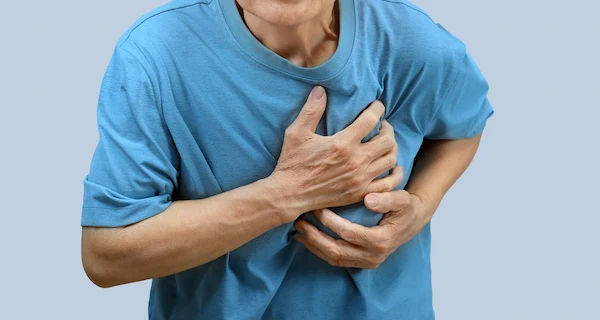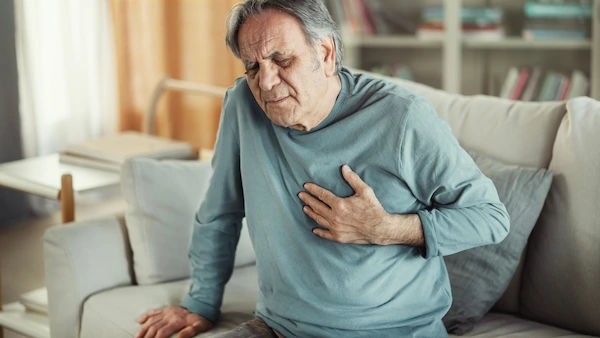What Leads To Chest Pain
Discover the causes of chest pain, its warning signs, and possible underlying conditions. Learn when chest pain requires urgent medical attention.


Introduction
Chest pain is one of the most common reasons people visit the emergency room, and for good reason. Its sudden arrival sends a jolt of fear, immediately making us wonder about our heart. However, what many don't realize is that chest pain can stem from a surprisingly different array of sources, from your muscles and lungs to your digestive system and even your mind. Understanding these variations is crucial. It can mean the difference between panicking over indigestion and recognizing a true cardiac emergency. This guide will help you decode the different sensations, locations, and accompanying symptoms of chest pain, empowering you with knowledge about potential causes, from the life-threatening to the benign. Remember, this information is for awareness; any new, unexplained, or severe chest pain requires immediate professional medical evaluation.
The Critical First Step: Is It a Heart Attack?
When chest pain strikes, the first and most vital question to ask is whether it could be a heart attack. Cardiac-related pain demands immediate action.
Heart Attack (Myocardial Infarction) Pain
A heart attack occurs when blood flow to a part of the heart is blocked. The pain is often described not as a sharp stab, but as a sensation of chest tightness, pressure, squeezing, or fullness. It's frequently located in the center or left side of the chest. The key characteristic is that it may radiate to other areas: the left arm (a classic sign), jaw, neck, back, or even the stomach. It's often accompanied by shortness of breath, a cold sweat, nausea, lightheadedness, and overwhelming anxiety. The pain typically persists for more than a few minutes and may come and go in waves.
Angina Pectoris: The Heart's Warning Sign
Angina is chest pain or discomfort caused by reduced blood flow to the heart muscle, often a symptom of coronary artery disease. It feels similar to a heart attack but is usually triggered by physical exertion or emotional stress and relieved within minutes by rest or medication (like nitroglycerin). It's the heart’s way of saying it's not getting enough oxygen. Unstable angina (pain that occurs at rest, is new, or is worsening) is a medical emergency, as it can precede a heart attack.
Health topic carousel:
Doctor's speciality: Cardiology
Text: Consult a Top Cardiologist
Beyond the Heart: Other Serious Cardiac and Vascular Causes
Not all cardiovascular causes are heart attacks, but they are still critically serious.
Aortic Dissection: A Tearing Sensation
This is a rare but catastrophic condition where the inner layer of the body's main artery (the aorta) tears. The pain is distinctively sudden and severe, often described as a "tearing" or "ripping" sensation in the chest or upper back. This is a life-or-death emergency requiring instant surgical intervention.
Pericarditis: Inflammation of the Heart's Lining
This is inflammation of the pericardium, the thin sac surrounding the heart. It typically causes a sharp, stabbing pain in the center or left side of the chest. A key identifying feature is that the pain often improves when sitting up and leaning forward and worsens when lying down or taking a deep breath. It can follow a viral infection.
Gastrointestinal Culprits: When Your Gut Mimics Heart Pain
Problems in your digestive tract are among the most common non-cardiac sources of chest pain.
GERD and Heartburn: The Classic Imposter
Gastroesophageal reflux disease (GERD) causes stomach acid to wash back up into the esophagus. This leads to a burning sensation behind the breastbone (heartburn) that can be remarkably similar to cardiac pain. Chest pain after eating, when lying down, or when bending over is a classic sign of GERD. It's often accompanied by a sour taste in the mouth.
Esophageal Spasm and Related Issues
The esophagus can have muscle spasms that feel like a sudden, intense chest tightness or pain, often mistaken for angina. Other issues like esophagitis (inflammation) or a hypersensitive esophagus can also cause persistent chest pain.
Musculoskeletal and Injury-Related Chest Pain
Sometimes, the pain is coming from the very structures that make up your chest wall.
Costochondritis: Chest Wall Inflammation
This is inflammation of the cartilage that connects your ribs to your breastbone. It causes sharp pain or aching and tenderness when you press on the area. The pain can be severe and is often mistaken for a heart attack. A key differentiator is that specific movements or deep breathing worsen costochondritis symptoms.
Muscle Strains and Rib Injuries
An intense workout, prolonged coughing, or an awkward movement can strain the pectoral or intercostal (between the ribs) muscles. This leads to a sharp stabbing pain in the chest that is directly related to movement or palpation of the specific sore spot. A bruised or broken rib will also cause localized, intense pain worsened by breathing or movement.
The Mind-Body Connection: Respiratory and Psychological Causes
Your lungs and mental state can be powerful sources of chest discomfort.
Pulmonary Embolism: A Blood Clot in the Lung
This occurs when a blood clot travels to an artery in the lungs, blocking blood flow. It's a medical emergency. Symptoms include sudden sharp stabbing pain in the chest that is often worse with deep breathing (chest pain when breathing deeply), accompanied by sudden shortness of breath, a rapid heart rate, and sometimes a cough with bloody sputum.
Panic Attacks and Anxiety-Induced Pain
Intense anxiety or a panic attack can trigger a cascade of physical symptoms that feel terrifyingly real. This can include chest tightness and anxiety, a racing heart, sweating, trembling, and even a feeling of impending doom. The pain often comes on during periods of high stress and may subside as the anxiety passes.
Pleurisy: Lung Lining Inflammation
Pleurisy is inflammation of the pleura, the double-layered membrane surrounding the lungs. It causes a sharp chest pain that is almost always worsened by breathing in and out or by coughing.
How Doctors Diagnose the Source of Your Chest Pain
Because the causes are so varied, diagnosis is a process. If you present with chest pain, a doctor will:
1. Take a detailed history: They will ask you to describe the pain's quality, location, duration, and what makes it better or worse.
2. Perform a physical exam: Listening to your heart and lungs, checking your blood pressure, and examining the chest wall.
3. Order tests: An ECG/EKG is almost always first to check heart rhythm. Blood tests (like troponin) look for heart muscle damage. Further tests might include a chest X-ray, CT scan (especially for pulmonary embolism), stress test, or an echocardiogram. For GI causes, an endoscopy might be needed. If your condition is persistent but not an emergency, consult a doctor online with Apollo24|7 for a preliminary evaluation and to determine if you need in-person tests.
Conclusion
Chest pain is a powerful signal from your body that demands attention. While this guide helps you understand the different potential sources, it is not a substitute for professional medical diagnosis. The most important takeaway is to trust your instincts. If the pain is severe, unexpected, or accompanied by symptoms like shortness of breath, dizziness, or sweating, treat it as a cardiac emergency and call for help immediately. For less severe but persistent pain, don't ignore it. Schedule an appointment with a healthcare provider to get a proper diagnosis and peace of mind. If your chest pain does not improve after monitoring it, book a physical visit to a doctor with Apollo24|7 for a comprehensive examination. Your health is paramount, and understanding these signals is the first step toward protecting it.
FAQs About Different Types of Chest Pain
Below are a few FAQs,
1. How can I tell if my chest pain is muscular or cardiac?
A. Muscular pain is usually sharp, localized to one area, and reproduced or worsened by pressing on the spot, twisting your torso, or taking a deep breath. Cardiac pain is often a diffuse pressure, squeezing, or tightness in the center of the chest that may radiate and is not affected by movement.
2. Can gas cause chest pain that feels like a heart attack?
A. Yes, absolutely. Trapped gas can cause significant distension and spasms in the intestines, pushing against organs and nerves and creating pressure and sharp pain in the chest and abdomen that can be mistaken for cardiac pain. It's often relieved by burping or passing gas.
3. What does anxiety chest pain feel like?
A. Anxiety-induced chest pain often feels like a sudden tightness or spasm in the chest. It can be accompanied by a racing heartbeat, hyperventilation, tingling, and a sense of dread. It typically arises during or after a stressful event.
4. When should I go to the ER for chest pain?
A. Go immediately if the pain is: severe and crushing; accompanied by shortness of breath, sweating, nausea, or pain radiating to your arm/jaw; follows a traumatic injury; or is a sudden tearing sensation in your back.
5. Can chest pain be caused by a pinched nerve?
A. Yes, a pinched nerve in the cervical or thoracic spine (in your neck or upper back) can refer to pain in the chest wall. This pain might be burning or shooting and could be associated with numbness or tingling.
Health topic carousel:
Doctor's speciality: Cardiology
Text: Consult a Top Cardiologist

_2.webp)
